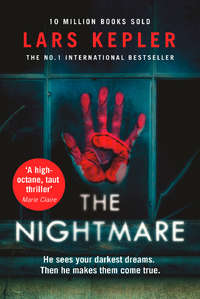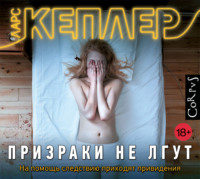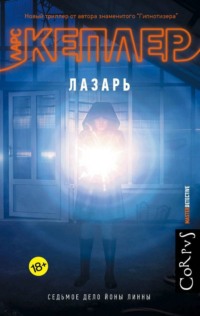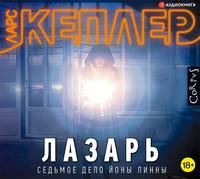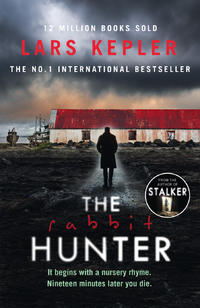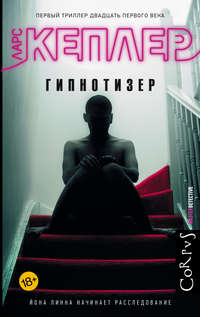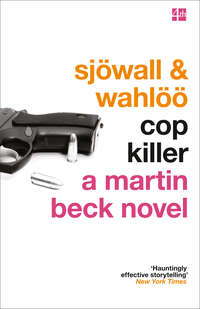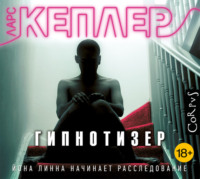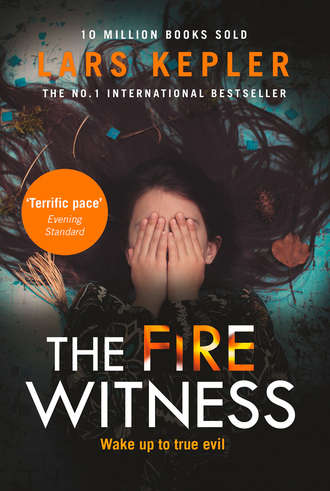
Полная версия
The Fire Witness
‘So we’re dropping any suggestion of a connection to Vicky Bennet?’ Bosse asks.
‘Try to get hold of the father first,’ Joona says.
‘I’ll get onto that,’ Sonja says, and goes to the back of the bus.
‘Was there anything outside Vicky Bennet’s window?’ Joona asks.
‘Nothing on the ground, but we found prints and some coagulated remains on the windowsill and the outside of the building,’ one of the forensics officers says.
‘How about the edge of the forest?’
‘We didn’t get that far before it started to rain.’
‘But presumably Vicky Bennet ran straight into the forest,’ Joona says thoughtfully.
He looks at Bosse Norling, who is doing things the old-fashioned way by leaning over the map with a compass, putting the point on the Birgitta Home, and drawing a circle.
‘It wasn’t her who took the car,’ Gunnarsson says. ‘Christ, it doesn’t take three hours to walk through the forest to Highway 86 and then follow it to …’
‘But it isn’t easy to get your bearings at night … so she could very well have walked something like this,’ Bosse says.
He points to a possible route to the east of an area of bog, then heading north.
‘Then the timing would fit,’ Joona says.
‘Dante’s father is in Tenerife at the moment,’ Sonja calls from the back of the bus.
Olle Gunnarsson swears under his breath, then goes over to the radio and calls Police Constable Mirja Zlatnek.
‘Gunnarsson here,’ he says. ‘Have you taken a witness statement from the mother?’
‘Yes, I—’
‘Have we got a description?’
‘It’s not easy, she’s in a very emotional state, and the mother doesn’t seem to have a coherent picture of events,’ Mirja replies, and breathes through her nose. ‘She’s badly shaken, and keeps talking about a skeleton with wiry hands that came out of the forest. A girl with blood on her face, a girl with twig-like arms …’
‘But she’s talking about a girl?’
‘I recorded her statement, but she says lots of weird stuff, she needs to calm down before we can question her properly …’
‘But she keeps coming back to the idea that it was a girl?’ Gunnarsson says slowly.
‘Yes … several times.’
29
Joona stops the car at the roadblock on Highway 330, says hello to one of the police officers stationed there, shows his ID, then carries on along the road beside the river.
He’s been told that the girls from the Birgitta Home are being temporarily housed in the Hotel Ibis. The counsellor, Daniel Grim, has been admitted to the acute psychiatric ward of the district hospital, the housekeeper, Margot Lundin, is at home in Timrå, and Faduumo Axmed, who works part-time as a care assistant, is off duty according to the rota, and down with her parents in Vänersborg.
When Police Constable Mirja Zlatnek said that Pia Abrahamsson kept coming back to the idea that it was a thin girl with bandages around her wrists, everyone realised that it was Vicky Bennet who had taken the car containing the little boy.
‘It’s a mystery that she hasn’t been caught in the roadblocks,’ Bosse Norling had said.
A helicopter was deployed, but there’s no trace of the car, not in the small town, and not along any of the logging tracks.
It isn’t really a mystery, Joona thinks. The most plausible explanation is that she managed to find somewhere to hide before she reached any of the roadblocks.
But where?
She must know someone who lives in Indal, someone who has a garage.
Joona has asked to speak to the girls in the company of a youth psychologist and a legally responsible adult from Victim Support, and is trying to remember the details of his first encounter with them in the small cottage at the home, when Gunnarsson came back with the two who had run off into the forest. The red-haired little girl had been watching television and banging her head against the wall. The girl called Indie had associated hands covering a face with Vicky, and then they had all started shouting and yelling at each other when they realised that she was missing. One of the girls claimed she was asleep, having taken Stesolid. Almira spat on the floor, and Indie rubbed her face and ended up with blue eyeshadow on her hand.
Joona can’t help thinking that there’s something about Tuula, the red-haired girl with white eyelashes and bright pink jogging bottoms. At first she yelled at them all to be quiet, but she had also said something when everyone was talking at the same time.
Tuula had said that Vicky had sneaked off to see her fuck-buddy.
30
The two-star Hotel Ibis is located on Trädgårdsgatan, not far from the police station in Sundsvall. It’s the sort of hotel that smells of vacuum cleaners, rugs, and ingrained cigarette smoke. The façade is covered with cream-coloured cladding. There’s a bowl of sweets on the reception desk. The police have put the girls from the Birgitta Home in five adjacent rooms, and have placed two uniformed officers in the corridor.
Joona walks purposefully across the worn floor.
The psychologist, Lisa Jern, is waiting for Joona outside one of the doors. Her dark hair is streaked with grey at the front, and her mouth is thin and nervous.
‘Is Tuula already here?’ Joona asks.
‘Yes, she is … wait a moment, though,’ the psychologist says when he reaches for the door handle. ‘As I understand it, you’re here as an observer from the National Crime Unit, and—’
‘A boy’s life is in danger,’ Joona interrupts.
‘Tuula is barely speaking, and … I’m afraid my recommendation as a child psychologist is to wait until she takes the initiative herself and starts to talk about what’s happened.’
‘There isn’t time for that,’ Joona says, taking hold of the handle.
‘Wait, I … It’s extremely important to be on the same wavelength as the children, they absolutely mustn’t feel that they’re being regarded as unwell or …’
Joona opens the door and walks into the room. Tuula Lehti is sitting on a chair with her back to the row of windows. A little girl, just twelve years old, in a tracksuit and trainers.
The street outside, lined with parked cars, is visible between the wooden slats of the blind. All the tables are covered with beech veneer, and there’s a fitted green carpet on the floor.
At the end of the room a man in a chequered blue flannel shirt with neatly combed hair is sitting looking at his phone. Joona realises that he’s the girls’ legally responsible adult.
Joona sits down in front of Tuula and looks at her. Her eyebrows are fair, her red hair straight and greasy.
‘We met very briefly this morning,’ he says.
She folds her freckled arms over her stomach. Her lips are thin and almost colourless.
‘Fuck the police,’ she mutters.
Lisa Jern walks around the table and sits down beside the hunched frame of the little girl.
‘Tuula,’ she says gently. ‘Do you remember me saying that I sometimes used to feel like Thumbelina? There’s nothing odd about that, because even as an adult you can feel really small sometimes.’
‘Why is everyone talking such fucking shit?’ Tuula asks, looking Joona in the eye. ‘Is it because you’re all thick, or because you think I’m thick?’
‘Well, we probably think you’re a bit thick,’ Joona replies.
Tuula smiles in surprise, and is about to say something, when Lisa Jern assures her that it isn’t true, that the superintendent was just joking.
Tuula folds her arms even tighter, stares at the table, and blows out her cheeks.
‘You’re definitely not thick,’ Lisa Jern repeats after a while.
‘Yes I am,’ Tuula whispers.
She spits a gob of saliva onto the table, then sits there silently poking at it and making it into a star shape.
‘Don’t you want to talk?’ Lisa whispers.
‘Only to the Finn,’ Tuula says almost inaudibly.
‘What did you just say?’ she asks with a smile.
‘I’ll only talk to the Finn,’ Tuula says, raising her chin.
‘How lovely,’ the psychologist replies stiffly.
Joona starts the recording, then calmly goes through the formalities, time and location, the names of those present, and the purpose of the conversation.
‘How did you end up at the Birgitta Home, Tuula?’ he asks.
‘I was at Lövsta … A few things happened that weren’t that fucking great,’ she says, and lowers her gaze. ‘I got caught up with some kids who got locked up, even though I’m really too young … I kept my cool, watched television, and one year and four months later I got moved to the Birgitta Home.’
‘What’s the difference … compared with Lövsta?’
‘It’s … the Birgitta Home feels like a proper home … Rugs on the floor, the furniture’s not screwed down … And there aren’t locks and alarms everywhere … And you get left to sleep in peace, and have home-cooked food.’
Joona nods, and sees from the corner of his eye that the responsible adult is still fiddling with his phone. The psychologist, Lisa Jern, is breathing through her nose as she listens to them.
‘What did you have to eat yesterday?’
‘Tacos,’ Tuula replies.
‘Was everyone there for dinner?’
She shrugs.
‘I think so.’
‘Miranda too? She had tacos yesterday evening as well?’
‘Can’t you just cut her stomach open and check? Haven’t you done that yet?’
‘No, we haven’t.’
‘Why not?’
‘We haven’t had time.’
Tuula smiles, and starts to pull at a loose thread on her trousers. Her nails have been bitten ragged, and her cuticles are torn.
‘I looked in the isolation room – it was pretty full-on,’ Tuula says, and starts to rock backwards and forwards.
‘Did you see the way Miranda was lying?’ Joona asks after a while.
‘Yes, like this,’ Tuula says quickly, and puts her hands in front of her face.
‘Why do you think she was doing that?’
Tuula kicks up the edge of the rug, then flattens it again.
‘Maybe she was frightened.’
‘Have you seen anyone else do that?’ Joona asks lightly.
‘No,’ Tuula says, and scratches her neck.
‘You don’t get locked in your rooms, then?’
‘It’s kind of like an open prison,’ Tuula smiles.
‘Do people often sneak out at night?’
‘I don’t.’
Tuula’s mouth becomes small and hard, and she pretends to fire her forefinger at the psychologist.
‘Why not?’ Joona asks.
She looks him in the eye and says quietly: ‘I’m scared of the dark.’
‘What about the others?’
Joona sees Lisa Jern standing there listening to them with an irritable frown between her eyebrows.
‘Yes,’ Tuula whispers.
‘What do they do when they sneak out?’
The girl looks down and smiles to herself.
‘They’re older than you, aren’t they?’ Joona goes on.
‘Yes,’ she replies, and blushes.
‘Do they meet boys?’
She nods.
‘Does Vicky do that too?’
‘Yes, she sneaks out at night,’ Tuula says, and leans closer to Joona.
‘Do you know who she goes to see?’
‘Dennis.’
‘Who’s that?’
‘I don’t know,’ she whispers, and licks her lips.
‘But his name is Dennis? Do you know his surname?’
‘No.’
‘How long is she usually gone?’
Tuula shrugs her shoulders and picks at a piece of tape that’s hanging from the seat of her chair.
31
The prosecutor, Susanne Öst, is waiting outside the Hotel Ibis beside a large Ford Fairlane. Her face is round and free from make-up. She’s got her blonde hair in a ponytail, and is dressed in long grey trousers and a smart grey jacket. It looks as if she’s been scratching her neck hard, and one wing of her shirt collar is sticking up.
‘Do you have any objections to me pretending to be a police officer for a while?’ she asks, and blushes.
‘On the contrary,’ Joona says, shaking her hand.
‘We’re busy knocking on doors, looking in garages, barns, car parks and so on,’ she says seriously. ‘We’re closing the net, there aren’t that many places you can hide a car …’
‘No.’
‘But obviously it’ll go a bit quicker now we’ve got a name,’ she smiles, and opens the front door of the big Ford. ‘There are four men called Dennis in the area.’
‘I’ll follow you,’ he says, and gets in his Volvo.
The American car sways as it pulls out and sets off towards Indal. Joona follows, thinking about Vicky.
Her mother, Susie Bennet, was an addict, and was homeless before her death last winter. Vicky has lived in various foster families and institutions from the age of six, and presumably quickly learned how to let old relationships go and how to make new ones.
If Vicky has been sneaking out to meet someone at night, he must live fairly close. Perhaps he waits for her in the forest or on the logging track. Perhaps she heads down Highway 86 to his home in Baggböle or Västloning.
The tarmac is drying now, the rainwater is settling in the ditches and shallow puddles. The sky is brighter now, but the forest is still dripping.
The prosecutor phones Joona, and he can see her looking in her rear-view mirror as she talks.
‘We’ve just found one Dennis in Indal,’ she says. ‘He’s seven years old. There’s another one who lives out at Stige, but he’s currently working in Leeds.’
‘Which leaves two others,’ Joona says.
‘Yes. Dennis and Lovisa Karmstedt live in a house outside Tomming. We haven’t been there yet. And there’s a Dennis Rolando who lives with his parents just south of Indal. We’ve paid a visit to the parents, and there’s nothing there. But he owns a large workshop on Kvarnåvägen that we can’t get into … It’s probably nothing, because they’ve spoken to him, and apparently he’s in his car on the way to Sollefteå.’
‘Break the door open.’
‘OK,’ she says, and ends the call.
The landscape opens up and the road is lined by fields on both sides, sparkling from the recent rain. Red-painted farms press up against the forest, which stretches off into the distance behind them.
As Joona is passing through the peaceful hamlet of Östanskär, two uniformed police officers are cutting through the heavy hinges of the workshop’s steel door with an angle-grinder. A cascade of sparks sprays across the wall. The officers insert sturdy crowbars, break the door open, and go inside. The beams of their torches seek their way into the shadows. The workshop contains about fifty old-fashioned arcade games, Space Invaders, Asteroids, Street Fighter, all covered with dirty plastic sheeting.
Joona sees Susanne Öst talking on her phone, then she glances at him in the rear-view mirror. His phone rings. Susanne tells him quickly that there’s only one address left. It’s not far away. They ought to be there in ten minutes.
He slows down and follows her as she turns right onto a road between two waterlogged meadows, then on into the forest. They approach a yellow wooden house with closed blinds in all the windows. There are apple trees growing in the well-tended garden, and a blue-and-white-striped swing seat in the middle of the plot.
They pull up and walk together towards a parked police car.
Joona says hello to the two officers, then looks up at the house with the closed blinds.
‘We don’t know if Vicky took the car to abduct the child, or if she just wanted a car and there happened to be a child in the back seat,’ he says. ‘Either way, we have to regard the child as a hostage under current circumstances.’
‘A hostage,’ the prosecutor repeats quietly.
She walks over and rings the bell, then calls out that the police will force the door open if they’re not let in. Someone moves inside the house. The floor creaks, and a heavy piece of furniture topples over.
‘I’m going in,’ Joona says.
One of the police officers keeps watch on the front door, the gable end facing the grass and the locked garage door, while the other one goes around to the rear of the house with Joona.
Their shoes and trousers get wet in the tall grass. At the back is a small flight of concrete steps leading down to a door with a mottled glass window. When Joona kicks the door in, the frame shatters and fragments of glass fly across the utility-room floor.
32
Broken glass crunches under Joona’s shoes as he enters a neat utility room containing a hand-driven mangle.
Miranda was sitting on a chair when she was murdered, Joona thinks. Elisabet was chased across the yard in her stockinged feet and into the brew-house, tried to crawl away, but was beaten to death from the front.
He can feel the weight of the new pistol in its holster beneath his right arm. It’s a semi-automatic Smith & Wesson, .45 calibre ACP. It’s heavier than his old one, holds fewer bullets, but is quicker with the first shot.
Joona carefully opens a creaking door and looks into an old-fashioned kitchen. There’s a large ceramic bowl of red apples on the round table, and the fine old stove smells of wood-smoke. A plate of frozen cinnamon buns is defrosting, and a drawer full of sharp knives is open.
He can see the wet greenery of the garden through the blinds.
Joona carries on into the hall and hears the ceiling light tinkle as its glass prisms knock against each other. Someone’s walking across the floor upstairs, making the lamp sway.
He creeps up the stairs, and glances down between the treads. There are clothes hung up in the darkness beneath the stairs.
Joona reaches the first landing and moves almost without a sound along the banister and into a bedroom containing a double bed. The blinds are drawn, and the ceiling light doesn’t work.
Joona goes in, checks possible lines of fire, then moves sideways.
On top of the colourful bedspread is the telescopic sight of a hunting rifle.
He can hear someone breathing, very close to him. Joona steps further into the room and aims his pistol at the far corner. Behind the open wardrobe a round-shouldered man with light brown hair is standing staring at him.
The man is barefoot and wearing dark blue jeans and a white T-shirt with the name Stora Enso on it. He’s hiding something behind his back as he moves slowly to his right, towards the bed.
‘I’m from the National Crime Unit,’ Joona says, lowering his pistol slightly.
‘This is my house,’ the man says in a subdued voice.
‘You should have opened the door.’
Joona sees sweat running down the man’s cheeks.
‘Did you break my back door?’ the man asks.
‘Yes.’
‘Can it be repaired?’
‘I doubt it,’ Joona replies.
There’s a flicker in the smoked mirror on the sliding wardrobe door. Joona sees that the man is concealing a large kitchen knife behind his back.
‘I need to look in your garage,’ Joona says calmly.
‘My car’s in there.’
‘Put the knife on the bed and show me the garage.’
The man takes out the knife and stares at it. The polished wooden handle is worn, and the blade has been sharpened many times.
‘I haven’t got time to wait,’ Joona says.
‘You shouldn’t have broken my—’
Suddenly Joona detects movement behind him. Bare feet running across the floor. He only has time to move sideways slightly without taking his eyes off the knife. A shadow rushes towards him from behind. Joona twists his body, raises his arm, and follows through, adding force to the blow as he hits the rushing figure with his elbow.
Keeping the barrel of the pistol aimed at the man with the knife, he hits a boy in the chest with his elbow. The boy sighs, and all the air goes out of him, he reaches out for support, and sinks to his knees.
He breathes in deeply, curls up on the floor, crumpling the rag-rug beneath him, and lies there gasping on his side.
‘They’re from Afghanistan,’ the man says quietly. ‘They need help, and—’
‘I’ll shoot you in the leg if you don’t put the knife down,’ Joona says.
The man looks at the knife, then tosses it on the bed. Two smaller children suddenly appear in the doorway. They stare at Joona, wide-eyed.
‘You’re hiding refugees?’ Joona asks. ‘How much do you get for that?’
‘As if I’d take money,’ the man says indignantly.
‘Do you?’
‘No, I don’t.’
Joona meets the boy’s dark gaze.
‘Do you pay him?’ he asks in English.
The boy shakes his head.
‘No human being is illegal,’ the man says.
‘You don’t have to be afraid,’ Joona tells the older boy. ‘I promise I will help you if you are abused in any way.’
The boy looks into Joona’s eyes for a long time, then shakes his head.
‘Dennis is a good man,’ he whispers.
‘I’m glad,’ Joona says, meets the man’s gaze, then leaves the room.
Joona goes down the stairs, all the way to the garage. He stands for a while looking at the dusty Saab parked there, and thinks about the fact that Vicky and Dante have disappeared, and they have no more places to look.
33
Flora Hansen is mopping the shabby linoleum floor in the hall of the flat. Her left cheek still stings from the slap, and there’s an odd buzzing sound in her ear. The floor has lost its shine over the years, but mopping it makes it look better for a little while at least.
The smell of detergent spreads through the rooms.
Flora has beaten all the mats, and has already mopped the living room, the cramped kitchen, and Hans-Gunnar’s room, but she’s waiting to do Ewa’s bedroom until Solsidan starts on television.
Ewa and Hans-Gunnar both watch the series, and would never miss an episode.
Flora mops the floor energetically, the grey fabric of the mop-head keeps slapping into the skirting boards. She moves backwards, and bumps into the picture she made thirty years ago, when she was at preschool. All the children stuck different types of pasta to a piece of wood, then the whole thing was sprayed with gold paint.
The programme’s theme tune comes on.
Now’s her chance.
Flora feels a jolt of pain in her back as she picks up the heavy bucket and carries it into Ewa’s room.
She shuts the door behind her and puts the bucket in the way to stop the door being pushed open easily.
Her heart is already beating hard as she dunks the mop in the bucket, squeezes out the excess water, and looks at the wedding photograph on the bedside table.
Ewa hides the key to the bureau in the back of the frame.
Flora takes care of all the housework in return for being allowed to live in the box room. She had to move back in with Ewa and Hans-Gunnar when her unemployment benefit ran out after she lost her job as an auxiliary nurse at Sankt Göran’s Hospital.
When she was a child, Flora always thought her real parents were going to come and get her, but they were probably junkies, seeing as Ewa and Hans-Gunnar say they don’t know anything about them. Flora arrived here when she was five years old, and has no memories from before then. Hans-Gunnar has always described her as a burden, and she’s been desperate to get away ever since she was a teenager. When she was nineteen she got a job at the hospital and moved into her own flat in Kallhäll the same month.
The mop drips as Flora goes over to the window and starts mopping the floor. The linoleum is black under the radiator, from water damage. The old blinds are broken and hang crookedly between the inner and outer panes of glass. There is a wooden Dala horse from Rättvik on the windowsill between the pelargoniums.
Flora moves slowly towards the bedside table, stops and listens.
She can hear the television.
Ewa and Hans-Gunnar look young on the wedding photograph. She’s wearing a white dress, him a suit with a silver-coloured tie. The sky is white. A black, onion-domed bell tower stands on a mound beside the church. The tower is sticking up behind Hans-Gunnar like a peculiar hat. Flora has never been able to put her finger on why she’s always found the picture unsettling.


